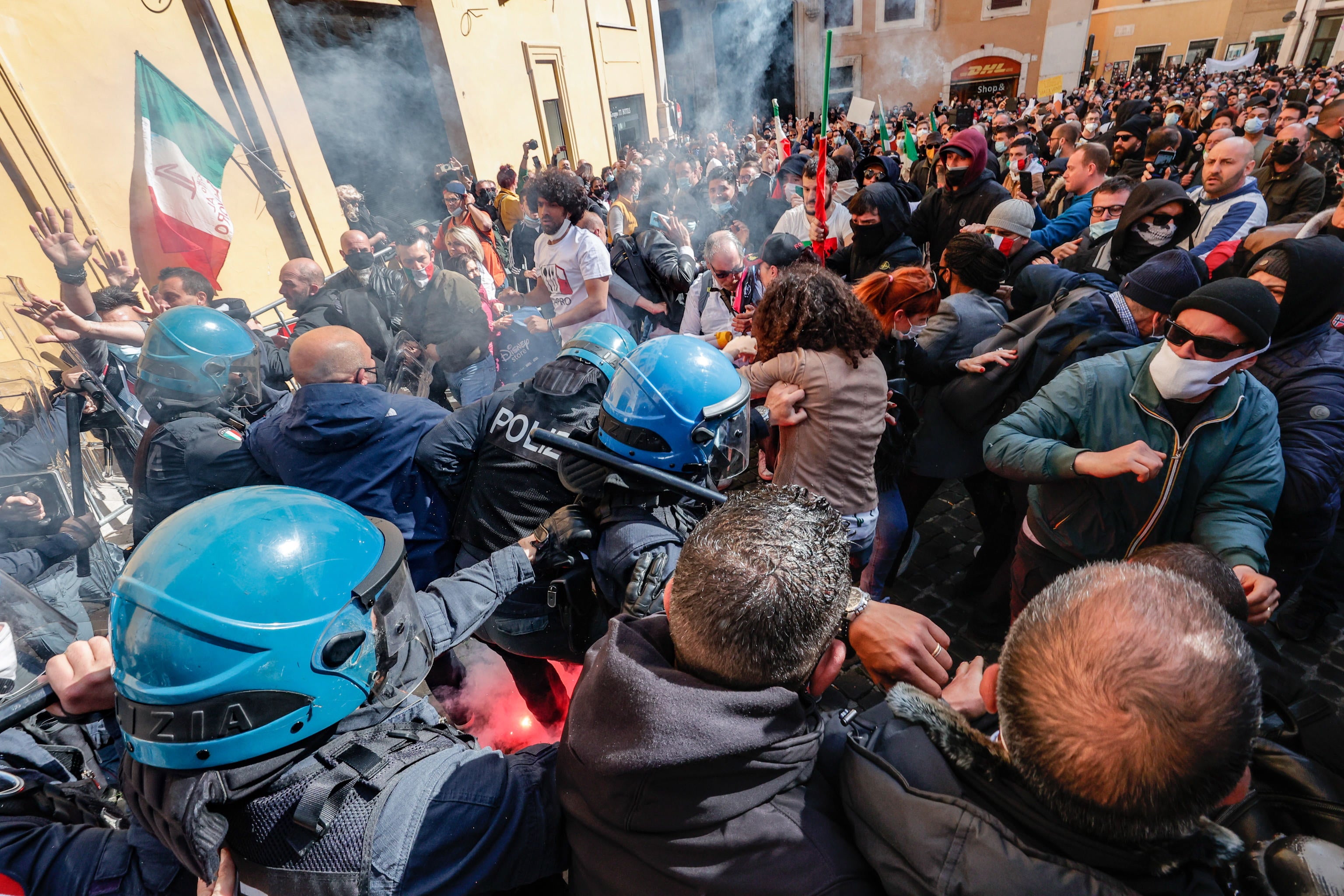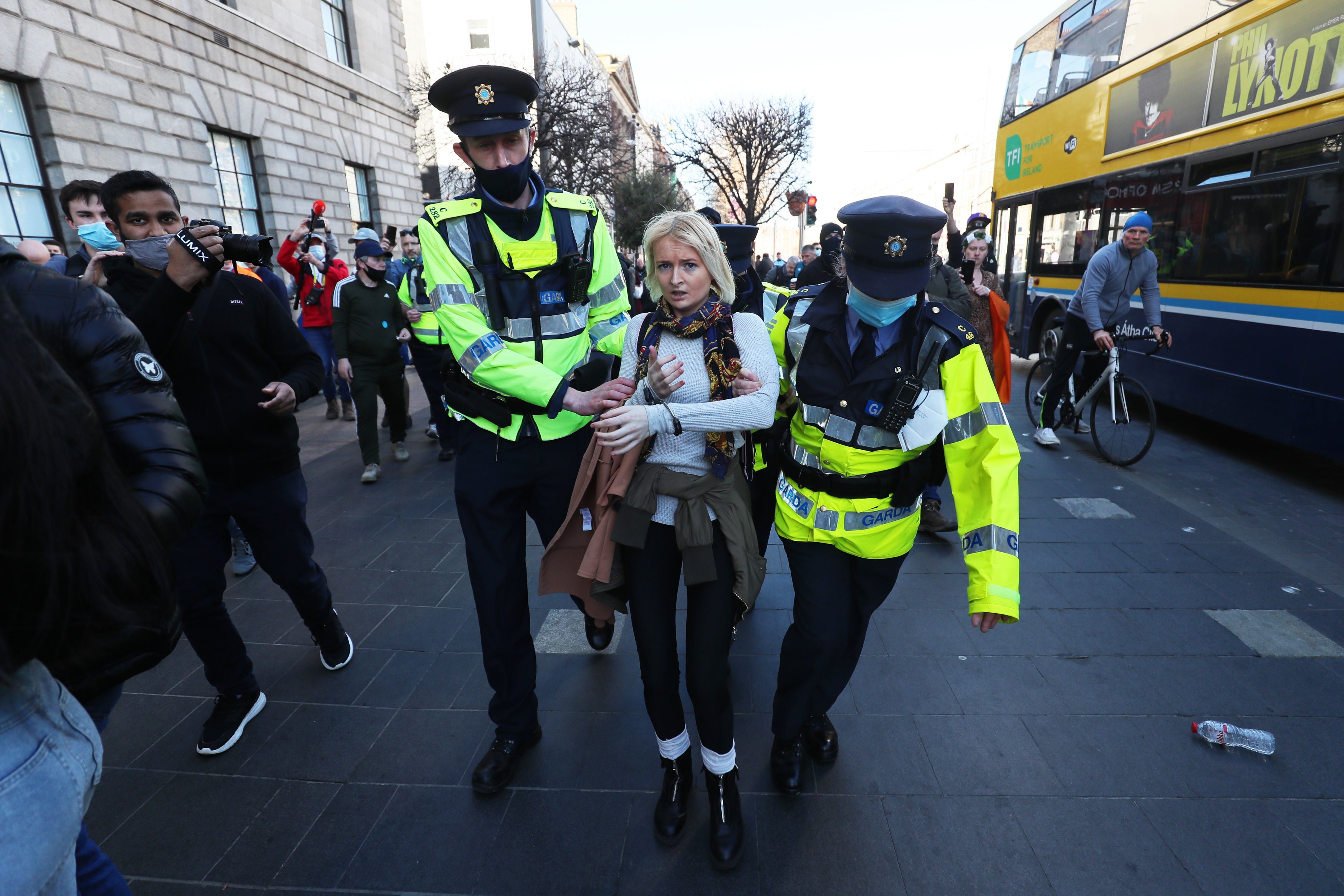How governments used Covid to spy on, repress, beat and kill people
The pandemic has ‘laid bare the devastating consequences of abuse of power’, said Amnesty’s director general

A global health crisis that could have brought humanity together in a spirit of solidarity was instead exploited by dictators and autocrats across the world to crack down on peaceful opponents, roll back democratic gains and step up surveillance efforts, according to a report issued on Wednesday by Amnesty International.
Governments across the world, but especially in the Middle East and North Africa region dominated by corrupt, repressive autocratic regimes, used the Covid-19 pandemic to silence, harass, arrest and even kill citizens, including the frontline health workers whom they publicly lauded as heroes of the pandemic.
Amnesty’s 408-page “The State of the World’s Human Rights” also identifies trends in inequality and discrimination that it says likely exacerbated the pandemic, which continues to wreak havoc across the planet.
“Pandemic times laid bare the devastating consequences of abuse of power, structurally and historically,” said an introductory note by Agnes Callamard, the new director general of Amnesty. “The Covid-19 pandemic may not define who we are, but it certainly has amplified what we should not be.”
The report details how governments “ruthlessly exploited” the pandemic to deepen attacks on human rights and freedom of expression.
Read more:
- Coronavirus news live: Latest AstraZeneca vaccine updates
- ‘Link’ between AstraZeneca vaccine and blood clots, EMA official says
- Chile virus surge shows vaccine rollout may not end lockdowns, says Chris Whitty
- Which countries will be on the ‘green list’?
- Covid passports could be required for clothes shopping after 21 June, indicates Downing Street
Across the world, law enforcement used the pandemic as an excuse to block demonstrations against state violence, political repression or even mishandled Covid measures. Under the guise of enforcing lockdown rules, for example, nurses in Zimbabwe were arrested for protesting to improve their salaries and work conditions.
Hamfisted security measures meant to enforce public health frequently created far more risks. In Albania, police shot dead a 25-year-old man while enforcing quarantine measures, prompting days of protests and rioting where more people were assaulted and arrested by security forces. In Angola, police stopped and hassled a 20-year-old for not wearing a mask, firing a gun next to his ear and ultimately causing him to die of heart failure.
Authorities across the world issued laws criminalising criticism of the pandemic. Journalists in nations that included Venezuela, Egypt, India, Iran, Nepal, Niger and the Republic of Congo were harassed or arrested for criticising or even reporting on government handling of the health crisis.
Autocratic regimes in Algeria, Jordan and Morocco imposed states of emergency that criminalised legitimate expression about the pandemic.

“Within days of the news of the Covid-19 outbreak, authorities in several countries across [Asia] tried to suppress information about it and punished those who criticized government actions,” said the report, identifying China and Indonesia as particularly egregious violators of press freedoms.
In eastern Europe, citing national security concerns related to the public health, governments rushed through legislation to bolster surveillance capabilities. Other rightwing governments used the pandemic as an excuse to ram through long-coveted social measures, such as restricting access to abortion and women’s health services, or to deny hormone therapy to trans people.
Israel used the pandemic to extend use of electronic surveillance capabilities usually targeting Palestinians to to trace Covid infections. Lithuania amended a law on electronic surveillance to allow the government to track people’s movements without judicial approval in order to quell the spread of the virus.
Particularly vulnerable were refugees and migrants in nations where they were forced to continue working or crowded into camps and detention centres without proper protections. Despite the lockdown measures, police in France continued to forcibly evict refugees and migrants from informal camps, effectively turning them into potential spreaders of the coronavirus.
“While some governments took steps to release detainees to curb the spread of Covid-19, overcrowding and unhygienic conditions in places of detention endangered inmates,” said the report. “Continuing forced evictions increased people’s exposure to the virus by making them homeless.”
Join our commenting forum
Join thought-provoking conversations, follow other Independent readers and see their replies
Comments
Bookmark popover
Removed from bookmarks